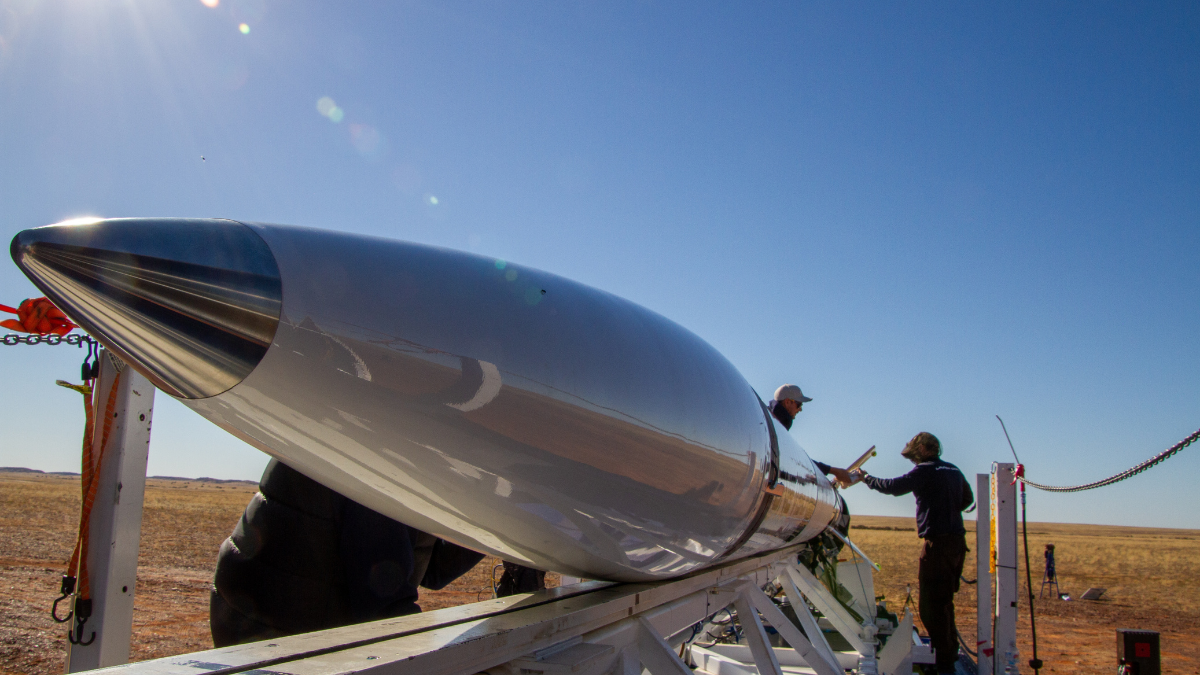Australia’s burgeoning space industry has the potential to unlock a raft of economic opportunities. However the industry’s success depends on the Government’s willingness to look beyond university-led research and recognise the crucial role that businesses play in driving innovation.
When Adam Gilmour, Co-founder and CEO of Gilmour Space, first set out to grow Australia’s domestic capability in the space industry, he was largely met with disbelief.
“In the US everyone knows about the space industry. But in Australia, when we started Gilmour Space every politician we met thought we were crazy. No one thought it was something Australia could do,” said Mr Gilmour.
However this year, Prime Minister Scott Morrison identified the space industry as one of Australia’s six main industries in its modern manufacturing strategy.
Last week, the Morrison Government announced the new Head of the Australian Space Agency, Virgin Galactic’s COO Enrico Palermo.
“Mr Palermo’s leadership will rocket Australia toward our goal of becoming a major player in the international space industry, while providing benefits across our economy,” said Mr Morrison.
“By 2030, we want to triple the size of our space sector – adding $12 billion to our economy and creating up to 20,000 new, high-skilled jobs.”
As Australia expresses a growing interest and investment in space, we chatted to Mr Gilmour about how the industry has evolved over time, what his personal entrepreneurial journey involved and what is still needed to keep propelling Australia’s space industry forward.
Starting with zero networks or market presence
Gilmour Space started with no connections in the space industry but set out to rapidly accrue experience and knowledge.
“We had no track record, no market presence. Now we have executives from orbital companies around the world and so we have a deep amount of knowledge in our company.”
Although Mr Gilmour had no formal background in space or technology, his experiences as a banker during the GFC prepared him well for his fast-paced and unpredictable career in entrepreneurship.
“I ran a big business at Citibank during the GFC and there was a time I was losing USD $2 mn a day in customer defaults.
“I’d get phone calls saying that a customer had defaulted and I would reply is it more or less than 2 mn. If it was more, I’d stay on the phone.
“After going through that stress, you get used to the ups and downs that are inevitable in a business.”
Such soft skills, particularly innovative thinking and entrepreneurial energy, are key attributes of Australians that can drive the space industry forward.
“We’re naturally innovative people. We’ve got researchers and entrepreneurs competing globally.”
Government must look beyond university research
However, Mr Gilmour emphasises that the linchpin of Australia’s future success in space is governmental support.
“The Government has been giving money to universities because they’re good at discovering but they can’t decide why they’re not good at innovating.”
Mr Gilmour argues that the Government must start investing in business-driven innovation instead of only focusing on university R&D.
“Universities are not risk takers. They’re not entrepreneurs. They are professors with experience in research but no experience in running a company.
“They also have a low tech readiness level (TRL). The TRL goes from 0 to 9. 3 is an early prototype, 6 is an advanced prototype and 9 means it’s a mission that been completed. Universities usually take something up to a 2 or 3 and can’t take it beyond that.”
He believes that the Government must also have greater confidence in domestic space businesses.
“Government usually contracts with overseas companies.
“In the past, Australia hasn’t had the capability to do much. Now there is, but there’s still an unconscious bias that space businesses are better overseas.
“No one who starts a space company here focuses on Australia. Every company is born global.”
However Mr Gilmour is optimistic about the growing political support for Australia’s space industry.
“There’s been a fabulous change in mindset from the Government in the last 3 years.
“They’ve realised that Australia can step up and start making deep tech products not only in space but in defence as well.
“Australia is at a tipping point in the space industry. The next five years will be very exciting.”
Keep up to date with our stories on LinkedIn, Twitter, Facebook and Instagram.

